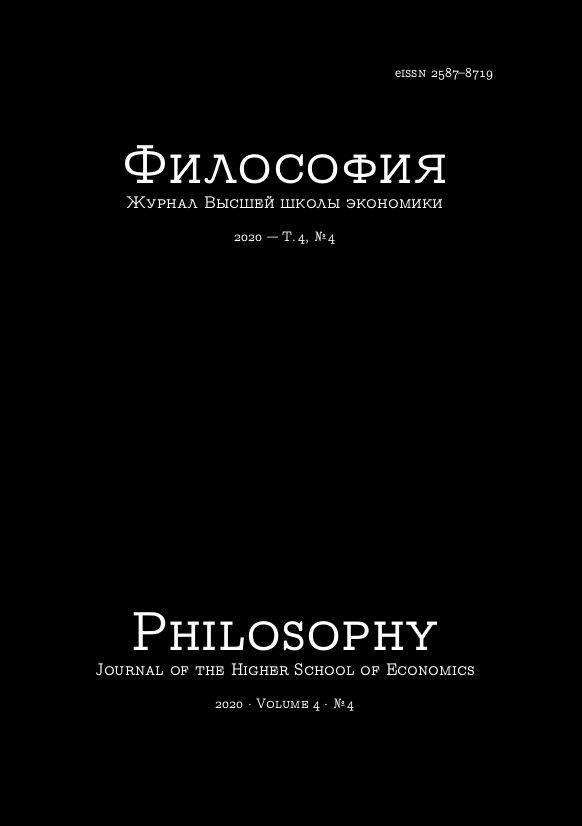William James's Philosophy of Mind
Between Neutral Monism and Panpsychism
Abstract
This paper is an introduction to William James' philosophy of mind and is intended to prepare the reader for his work “How Two Minds Can Know One Thing”. The views of William James on three topics in the philosophy of mind are considered: panpsychism, neutral monism, and combination problem. There is a very deep connection between the modern analytical philosophy of mind and the philosophy of this author. A variety of neutral monism, to which James adhered, is analyzed, including the problem of neutrality of substance. Neutral monism in practice does not provide complete independence of a substance from mental and physical properties, and therefore neutral monism may tend to panpsychism if we are not talking about its idealistic varieties. The author concerns the relationship between panpsychism and neutral monism as two approaches to the combination problem. James's panpsychism is analyzed in terms of modern classification. Paper selectively considers individual episodes in James's philosophy in which he adhered to such panpsychism varieties as panexperientialism and panqualityism. The following is a question of the influence of James's combination problem on his philosophy as well as on modern analytical philosophy of mind. At different periods of time, James took, at first glance, mutually exclusive viewpoints on these issues. It is shown that the analysis of James's concept, taking into account the modern development of panpsychism, allows seeing an additional internal consistency in his systematic consideration of the phenomenon of consciousness.
Downloads
Copyright (c) 2020 Philosophy. Journal of the Higher School of Economics

This work is licensed under a Creative Commons Attribution-NonCommercial 4.0 International License.






